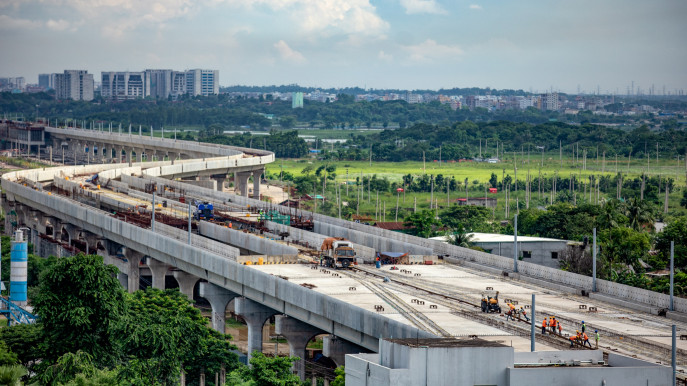
victim blame in society
‘সমাজে ভিকটিম ব্লেইমের সমস্যা প্রকট’ Published by Risingbd | March 08, 2024; (Link Here) Victim blame in society ব্যারিস্টার মিতি
Disruptions in the supply chain during the Covid-19 pandemic and the US-China trade tension are some of the factors that led Japan to consider relocating its establishments from China to other countries where labour costs are low and closer to where they are consumed.
In March 2020, the Japanese Prime Minister Shinzō Abe said that his country wants to bring production back and diversify into Southeast Asia.
They have also announced a list of companies that will benefit from the first round of subsidies, with 57 companies receiving a total of $535 million to open factories in Japan and 30 others were paid to expand production in other Southeast Asian countries.
A rising number of Japanese manufacturing companies have always been showing interest in investing in Bangladesh.
According to data from the Bank of Japan, FDI inflows to Bangladesh by manufacturing companies increased from JPY 400 million in 2018 to JPY 3 billion in 2019. The figures roughly translate to $3 million and $27 million respectively.
The increase in investment by manufacturers in Bangladesh should also signal a positive message to those producers who are considering leaving China amid the pandemic.

Why invest in Bangladesh?
Over the decades Bangladesh has emerged as a favoured destination among foreign investors in different sectors. The country is known for offering a plethora of potential for foreign investors, especially those who are looking to venture into Southeast Asia.
Bangladesh has been enjoying the great advantage of being in a strategic geographical position between South and Southeast Asia. It is located close to other major markets in the region, such as China.
Increasing costs in countries like China has become another pivotal reason why many companies are moving their manufacturing units to other destinations. One of the main driving forces of Bangladesh’s economic growth is its young workforce, which has always been positively evaluated by Japanese entrepreneurs.
Foreign investors often say that they require permission from multiple government agencies to do business in Bangladesh. The government of Bangladesh has taken necessary steps to attract foreign investments by offering different incentives and facilities.
In May 2020, the government introduced the One-Stop Service (Bangladesh Investment Development Authority) Rule, 2020, formulated under the One-Stop Service Act (OSSA), 2018 which aims to support the investors by providing necessary services within a stipulated time.
Initially, Bangladesh Investment Development Authority (BIDA), Bangladesh Economic Zone Authority (BEZA), Bangladesh Export Processing Zone Authority (BEPZA) and Bangladesh Hi-Tech Park authority will be responsible for providing the Central One-Stop Service. Japan International Cooperation Agency (JICA) supported the establishment of BEZA OSS under a bilateral technical cooperation project.
Moreover, the 2020 Rule is a great step taken by the Government of Bangladesh, which shall certainly reduce the hassle, bureaucratic procedure and unnecessary delay in file processing.
Under this 2018 Act, action can be initiated against the authority which has failed to dispose of any application within the stipulated time. Such failure due to negligence, irregularity and/or non-cooperation will be considered as professional misconduct on the part of the concerned officer.
As a recent development, the Bangladesh government aims to finalise the 2020 Automobile Industry Development Policy. A draft policy has already been shared with stakeholders for seeking their valuable opinion.
Ryujiro Kobashi, vice-president of Mitsubishi Motors, expressed interest in setting up an assembly plant at Bangabandhu Sheikh Mujib Shilpa Nagar in Chattogram. Also, Ito Naoki, Japanese ambassador to Bangladesh conveyed the interest of Japanese automakers and emphasised on bilateral dialogue to increase FDI in Bangladesh.
Bangladesh is going to create its brand of automobiles with the technical support of Japan. The country has a bilateral investment treaty with Japan for the promotion and protection of investment.
In 1991 Bangladesh has also signed Convention for the Avoidance of Double Taxation and the Prevention of Fiscal Evasion concerning Taxes on Income with Japan.
The Promotion and Protection of Investment Agreement and Agreement on Technical Cooperation have also been signed between Bangladesh and Japan.
Bangladesh government and the Japan International Cooperation Agency (JICA) signed the Loan Agreement of Foreign Direct Investment Promotion Project (FDIPP).
The Government of Bangladesh is currently working on establishing Japanese Economic Zones (EZ) as a joint venture project based on the G2G provisions of the Bangladesh Economic Zones Act 2010 in the suburb of the capital city, Dhaka. This will be the largest investment of Japan in Asia.
Japan has maintained a stable friendship with Bangladesh and actively supporting the development of Bangladesh ever since the birth of the country. The friendship between Japan and Bangladesh has never been influenced by international politics or other domestic or global phenomena.
People of Japan at large have always shown close affinity for the people of Bangladesh and vice versa. Currently, Japan has around 310 companies operating in Bangladesh. To further boost the bilateral relations, the two countries’ cooperation, especially in investment, trade, economy and security, have to be strengthened.
Barrister Miti Sanjana is an Advocate of Supreme Court of Bangladesh and a partner of LEGAL COUNSEL. sanjana@legalcounselbd.com

‘সমাজে ভিকটিম ব্লেইমের সমস্যা প্রকট’ Published by Risingbd | March 08, 2024; (Link Here) Victim blame in society ব্যারিস্টার মিতি

বাংলাদেশে আত্মহত্যার ঘটনাগুলোয় শাস্তি হওয়ার সুযোগ কতটা? Published by BBC | March 17, 2024; (Link Here) What is the chance

Partnership Business and Breach of Trust Published by The Daily Star | February 23, 2024; (Link Here) This week Your

প্রচারণা শুরু | জনতন্ত্র গণতন্ত্র https://youtu.be/mVCOd8R0FIk Women and girls are victims of torture Women and girls are victims of torture

স্মার্ট বাংলাদেশের রুপান্তরের গল্প https://youtu.be/gNfLTR7ZnzE Women and girls are victims of torture Women and girls are victims of torture Women
Drop Your Queries

Dhaka Office
Chattogram Office
Dhaka Office Map
Chattogram Office Map